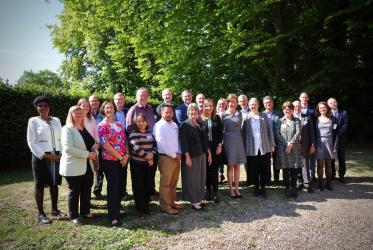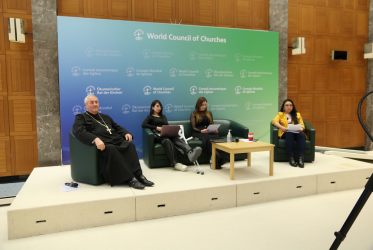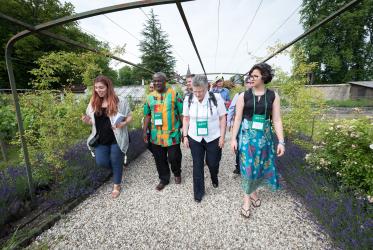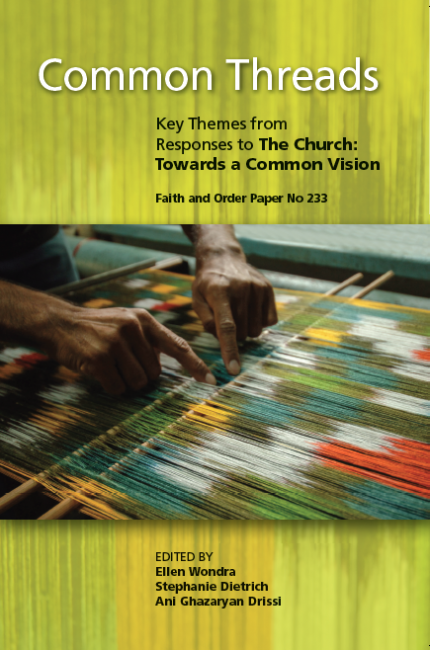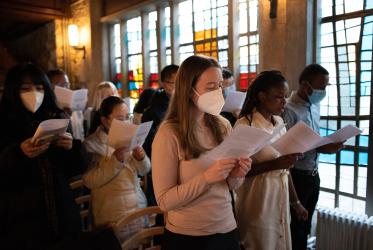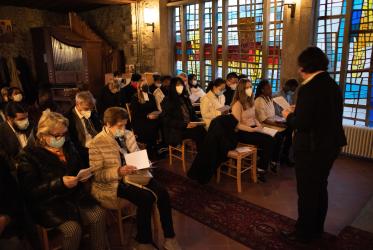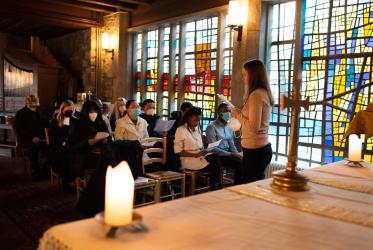Displaying 101 - 120 of 545
What do we hear when the ecumenical youth roar?
05 April 2022
Now available: “The Journey of the WCC from Busan to Karlsruhe”
28 February 2022
Pilgrims on the Path of Peace
The Journey of the WCC from Busan to Karlsruhe (Unillustrated)
28 February 2022
Common Threads
Key Themes from Responses to The Church: Towards a Common Vision. Faith and Order Paper No 233
25 February 2022
Tutu’s legacy: A Zoom panel celebrating “the Arch”
03 February 2022
Bossey student Carolina Zamorano reflects on study visit to Rome
02 February 2022
